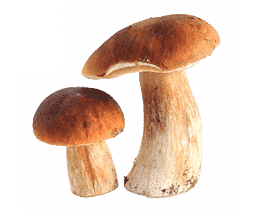
Psilocybin-Assisted Therapy: A New Approach to Quitting Smoking?

Psilocybin, the psychoactive compound found in magic mushrooms, is emerging as a promising tool in the fight against nicotine addiction. Recent studies have shown that psilocybin-assisted therapy may be a highly effective way to help smokers quit.
This innovative approach offers a potential solution for those struggling to overcome this stubborn habit.
A New Idea - Using Psilocybin
What is Psilocybin?
One idea they had was to use a substance called psilocybin along with therapy. Psilocybin comes from mushrooms and affects certain receptors in the brain.
They call these mushrooms “magic mushrooms” or “shrooms.” In a small study, they gave psilocybin to a group of people who wanted to quit smoking.
After six months, 80% of them were still not smoking! That’s a really good result.
The Psilocybin Study
In the pilot study, held at Johns Hopkins University, a group of researchers decided to try something new to help people quit smoking. They used magic mushrooms in a pill form in a closely monitored setting.
Good News from the Study
The study found that using psilocybin along with therapy helped a lot of people quit smoking. After six months, 80% of the people in the study were still not smoking.
Even former longtime smokers! That’s a really good result, and it means this method might be a great way to help people quit smoking.

Safety and Side Effects: Is It Safe?
The researchers behind this study took careful measures to ensure the safety of participants undergoing psilocybin treatment. Their findings indicated that the treatment was generally well-tolerated, with only minor issues observed.
Here’s a breakdown of the key side effects and safety considerations:
Minor Side Effects:
- A few participants reported headaches, which, while uncomfortable, are not typically harmful.
- Some experienced a slight increase in blood pressure. This was minor and didn’t indicate a significant health risk, similar to a temporary uptick your body might experience during mild exertion.
- There was also a slight increase in heart rate for some participants. This was comparable to how your heart may beat a bit faster during excitement or light physical activity. Again, this was not considered dangerous.
Emotional Reactions:
- Anxiety and fear were reported by some participants during treatment, similar to the nerves you might feel when facing something new or challenging.
- Support and reassurance were provided by the study team, helping to ease these emotions, which, like a fleeting moment of fear, eventually subsided with guidance.
Temporary Nature of Side Effects:
- Importantly, all of these concerns—whether physical or emotional—were minor and temporary, resolving quickly with the appropriate care and attention from the study’s support team.
The study demonstrated that this new psilocybin treatment was safe for most people. The minor side effects (headaches, slightly higher blood pressure, or increased heart rate) and emotional reactions were manageable and temporary.
This level of safety, combined with the treatment’s effectiveness, makes it a promising option for those seeking healthier lives by quitting smoking—offering reassurance much like ensuring a new adventure is both exciting and secure.
Long-Term Effects
What Happens Later?
Now the researchers are following up with the participants to see how they’re doing after 12 months and even up to 30 months after the treatment. They want to see if the effects last and if there are any lasting psychological effects.
The Follow-Up
Checking In After 12 Months
Long-Term Success

Positive News in the Long Term
After 12 months, 10 of the participants (which is about 67% of them) were proven to have stopped smoking. Out of those 10, 8 said they hadn’t smoked at all since they started the treatment.
When they checked again during the long-term follow-up, 9 out of the 15 people (which is about 60% of them) were still not smoking. And out of those 9, 7 said they hadn’t smoked since they started the treatment.
Conclusion
Scientists have discovered that psilocybin, a substance found in magic mushrooms, can be highly effective in helping people quit smoking. Studies have shown that psilocybin-assisted therapy has a high success rate, with many participants remaining smoke-free for extended periods.
While some participants experienced temporary side effects like headaches or anxiety, the overall treatment was deemed safe. Researchers are now following up with participants to assess the long-term benefits and potential additional positive outcomes of this innovative approach to smoking cessation.
References
[1] Long-term follow-up of psilocybin-facilitated smoking cessation:
https://www.ncbi.nlm.nih.gov/pmc/articles/PMC5641975/
Johnson MW, Garcia-Romeu A, Griffiths RR. Long-term follow-up of psilocybin-facilitated smoking cessation. Am J Drug Alcohol Abuse. 2017 Jan;43(1):55-60. doi: 10.3109/00952990.2016.1170135. Epub 2016 Jul 21. Erratum in: Am J Drug Alcohol Abuse. 2017 Jan;43(1):127. PMID: 27441452; PMCID: PMC5641975.
[2] How Shrooms Help with Freedom From Addiction:
[3] ‘Magic Mushrooms’ Help Longtime Smokers Quit:
https://www.hopkinsmedicine.org/news/media/releases/magic_mushrooms_help_longtime_smokers_quit





